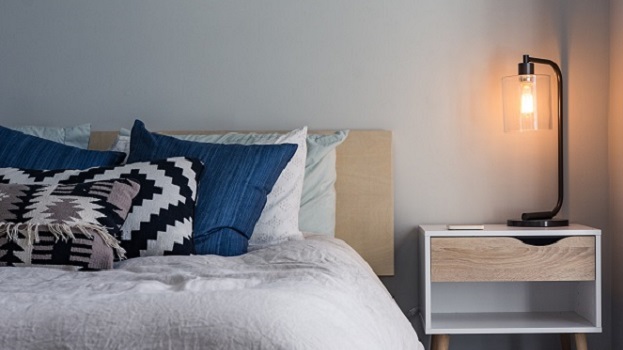Find out how you could improve your sleep and beat fatigue by taking our quiz.
If you want to stay healthy in the long-term, you’ll need the best sleep possible. Over time, poor sleep increases the risk of having a heart attack or stroke.

Regularly cutting back on your need for sleep by just an hour can double your risk of cancer. Not to mention that the groggy aftermath of a poor night’s sleep can severely affect your alertness and mental performance. You may end up endangering your own life, or the lives of others, especially if you drive or operate machinery.
Take our sleep quiz to see if there’s any room for improvement. Note down the score for the answer that most applies to you.
| Sleep quiz | Score |
|
1. How many hours of sleep do you get each night? |
|
|
2. How long does it take you to get to sleep? |
|
|
3. How light is it in your bedroom when you sleep? |
|
|
4. How noisy is it in your bedroom at night? |
|
|
5. How cool is it in your bedroom |
|
|
6. I eat dinner around… |
|
|
7. I put my mobile phone down… |
|
|
8. When do you drink caffeine? |
|
|
9. How often do you drink alcohol? |
|
|
10. When I exercise, I start my routine… |
|
Once you have a score, read the relevant section below.
| 0-10 |
This should serve as a wake-up call if you want to ensure your long-term health. You may well have got used to feeling irritable and tired for much of the day, but it needn’t be this way if you make a few lifestyle changes. Spend more time sleeping. Try cutting back on alcohol and caffeine to ensure you stay well rested. Create the right sleep environment and you could start to turn things around.
|
| 11-20 |
A score in this range is still cause for concern. You may often feel it is a struggle just to feel you are in the land of the living. Poor sleep should be the exception, not the rule, so consider modifying your routine to ensure you get enough – every night, not just occasionally. Many sleep experts recommend setting your alarm clock to start winding down for sleep, in addition to shocking you into consciousness first thing in the morning. Putting sleep at the top of your agenda is the key to your wellbeing.
|
| 21-30 |
Though you may be sleeping well much of the time, you could be sleeping better. When the alarm goes off, you could easily spend longer in bed because you are still tired. During the day, you may still feel like taking a nap, perhaps relying on caffeine to keep you going. Though some fundamentals for good quality sleep are in place, redoubling your efforts will pay dividends in your land of nod.
|
| 31-40 | In this range, you probably observe much of the good advice on sleep already, starting with the need to get at least seven to eight hours’ sleep every night. For you, sleep is a priority. Your bedroom is a sanctuary rather than a room full of gadgets for entertainment. |
Find out more
Six lifestyle tips to reduce fatigue
Worn out? Dead tired? Fatigue on the railway
Tags
- Fatigue
